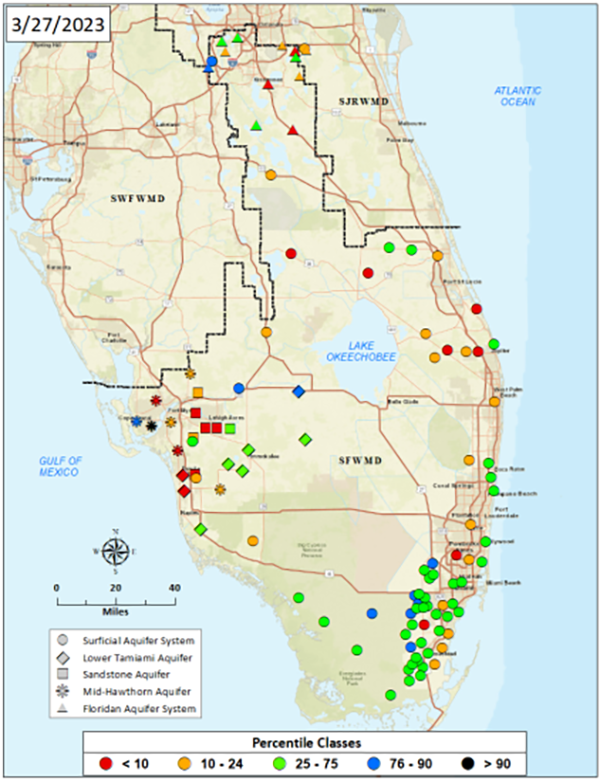
The South Florida Water Management District (SFWMD) is encouraging residents and businesses in Lee and Collier counties and throughout Southwest Florida to continue to practice water conservation measures to protect the region's aquifers and water resources as the region enters the heart of the annual dry season.
In South Florida, most of the water we use comes from underground aquifers, including in Lee and Collier counties where dry conditions have led to lower water levels in some of the aquifers providing water supply. Conserving water helps to ensure adequate supply for all from these underground aquifers throughout the dry season.
The majority of residential water use occurs outdoors with landscape irrigation accounting for approximately 50 percent of home water use. One of the most important things local residents can do to protect our regional water sources is to adjust irrigation controller settings to ensure it operates in accordance with local irrigation ordinances and inspect their irrigation systems. Learn your irrigation days and times by visiting Lawn Watering Restrictions. Irrigation systems should be free of leaks and be in good working order. SFWMD encourages residents to turn off irrigation systems when rainfall is projected.
Residents can learn more about things they can do around the house to conserve water:
- Ensure automatic irrigation control rain sensors are operating properly.
- Install aerators in kitchen and bathroom sinks.
- Install water efficient, ENERGY STAR labeled appliances like dishwashers and washing machines and WaterSense labeled high-efficiency water fixtures such as shower heads, bathroom faucets and toilets.
- Landscape the Florida-Friendly way by planting low maintenance plants using environmentally sustainable practices.
- Don’t overfill your pool. Maintaining a reasonable water level reduces the amount of water lost to splashing.
- Wash only full loads of laundry.
- Thaw frozen food in the refrigerator.
- Don't rinse your dishes before placing them in the dishwasher. Run only full loads of dishes.
By reducing irrigation demands and conserving water, residents can slow the aquifer’s water level decline until the rainy season begins. SFWMD scientists will continue to closely monitor aquifer conditions and may recommend additional actions to protect our region's water resources.
